If you’re like most people, you have a lot of photos on your computer. And if you’re like most people, you don’t back them up often enough. If your computer ever crashes or gets stolen, all those photos will be gone forever.
But there’s an easy way to prevent that from happening: by transferring your photos to an external hard drive. An external hard drive is a great way to back up your photos, and it’s also handy for storing other files, such as music and movies.
So how do you transfer photos from a Macbook to an external hard drive? It’s actually pretty simple. We’ve made a step-by-step guide on how to do it.
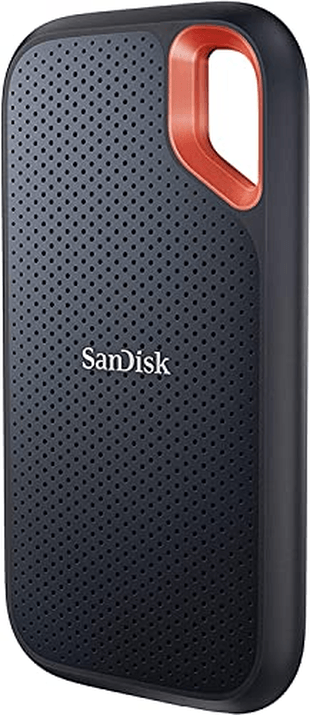
Here’s what you need to locate to move your images.
Photos Library is the folder where the Photos App stores the images you import to your computer. This import is directly from a camera, device, or your iCloud photo library. MacOS creates the library the first time you open Photos on your computer. Keeping large media-type files on something other than your system drive is considered good practice.
![]()
I use and would recommend an external solid-state drive (SSD) such as the SanDisk Extreme Portable SSD. Available in sizes up to 4 TB, these external hard drives are fast, reliable, rugged, and portable—perfect for your camera bag!
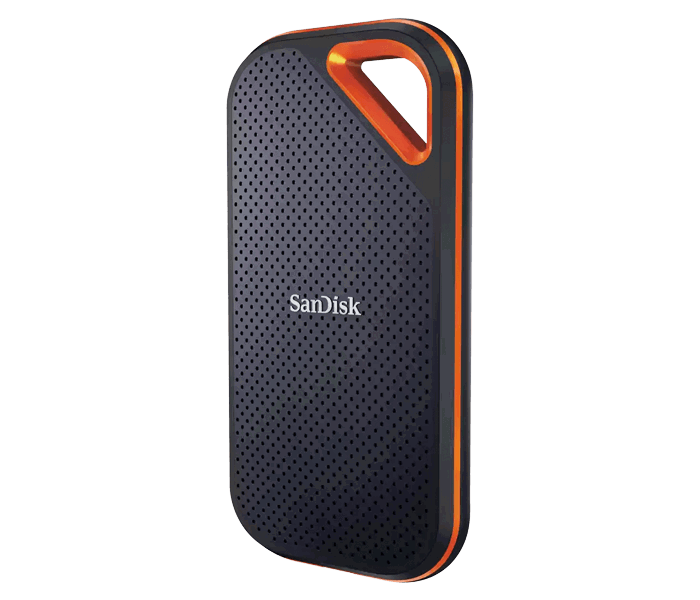
If you are transferring an extensive photo library, it can take some time. A few gigabytes can transfer in a matter of minutes. But if your library is closer to 1 TB (1,000 GB), be prepared to leave it overnight to finish!
Here is our step-by-step guide to transferring your files.
Connect your external drive to your computer. A USB-C port gives you the fastest data transfer. Any APFS or MacOS Extended Format drive works. But you cannot copy to a drive used for Time Machine backup.
If your Pictures folder is not listed in your Finder window, use Finder preferences to select what you see in your sidebar. Click on Finder > Preferences from the menu bar. Select the Sidebar tab. Check the folders you want displayed when you open a new Finder window.
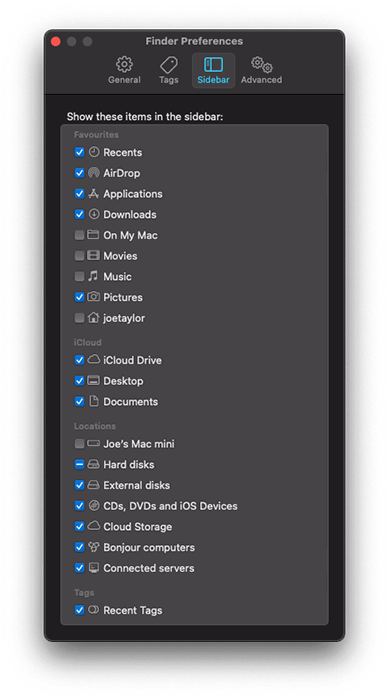
Make sure you quit the Photos application. Then click and drag the Photos Library icon to your external drive. Put it either in the sidebar or on the desktop. Wait for the data transfer to complete. This will copy (not move) your Photos library.
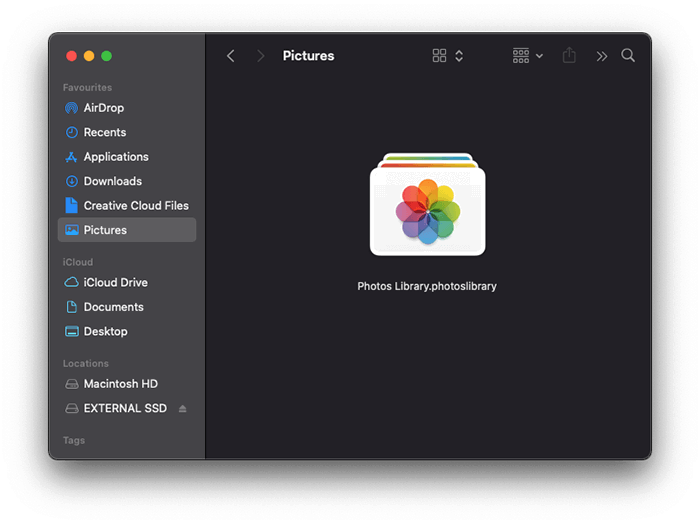 If you encounter an error popup, select your external drive in the Finder window, then choose File > Get Info (Command or Ctrl + I). Under Sharing & Permissions, check the box that says “Ignore ownership on this volume,” then try again.
If you encounter an error popup, select your external drive in the Finder window, then choose File > Get Info (Command or Ctrl + I). Under Sharing & Permissions, check the box that says “Ignore ownership on this volume,” then try again.
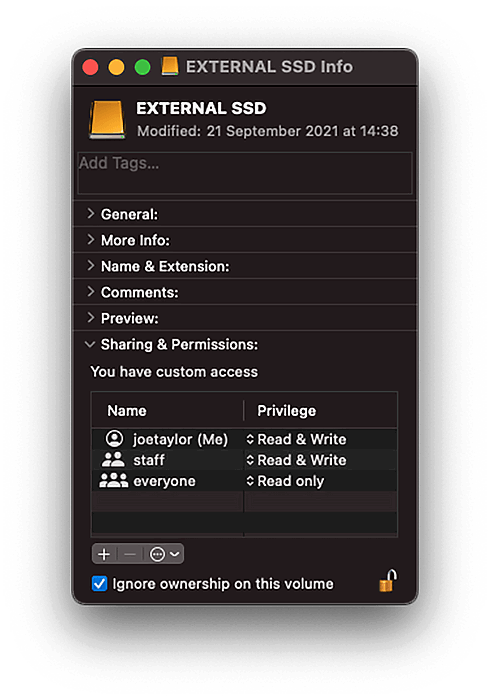
Do you only want to back up your Photos library to an external storage device? If so, stop here! Repeat steps one to three whenever you want to back up images. Rename the copy of the library each time. This is an excellent way to know which backup is which.
Browse to the created copy of your Photos Library and double-click the file icon to open it.
You can use many photo libraries from external drives. Only one, however, can be set as your System Photo Library. This library appears in apps like iMovie, iCloud Photos, Shared Albums, and Photo Stream. (The latter is a fantastic screensaver on your Apple TV.)
This library will also sync with your other devices. So when you take a shot with your iPhone or edit on your iPad, the pictures automatically store themselves in iCloud. And they show up on your computer!
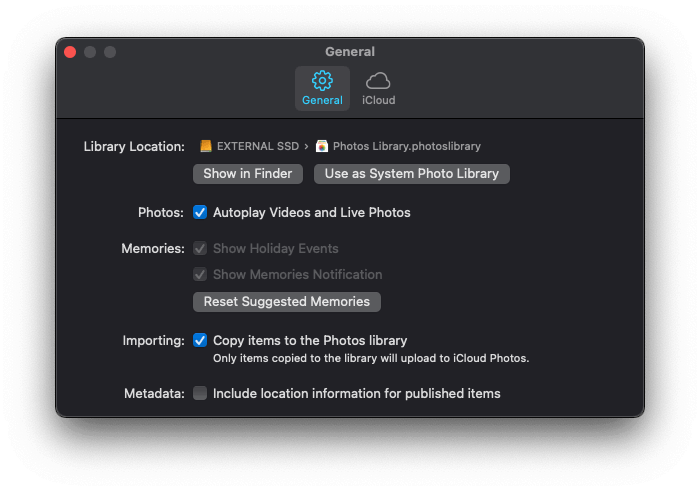 You can further optimize your storage in the iCloud tab. You can choose whether to store imported photos in the cloud. And you can decide if you want to share albums with other people or subscribe to their albums.
You can further optimize your storage in the iCloud tab. You can choose whether to store imported photos in the cloud. And you can decide if you want to share albums with other people or subscribe to their albums.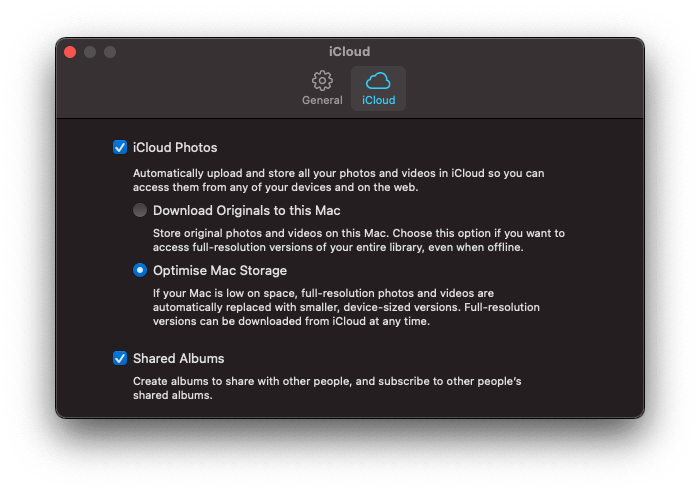
Now your copy is set up and working. And you can delete the original Photos Library file from your pictures folder. Drag the file to the Trash, right-click it, and select “Empty Trash.”
It is worth saying that you must connect your external hard drive each time you use the Photos App. Once you have deleted the library file from your Pictures folder, your pictures will no longer be on your Mac.
Whenever you want to add more images or edit existing pictures in your library, plug in your external drive and open Photos. Any iCloud-based images will automatically appear and download if you select them to edit.
When you connect a camera or phone, you will import the photos straight to the external device. Doing so will save space on your Mac. If you hold the Option key and click the Photos app, you can select the library you wish to open from a list.
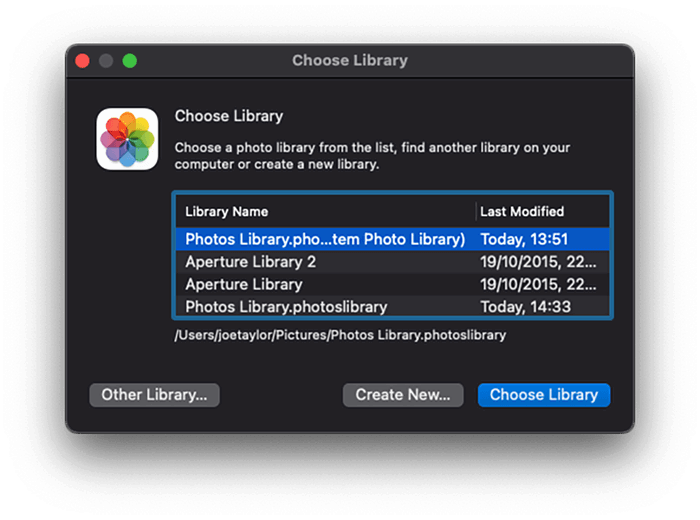
Now you know how to copy your Photos Library to an external hard drive. You can start managing your shoots like a pro!
I have a desk drawer full of external drives. Each major shoot or event is in its own library. Each drive is dedicated to a different kind of shoot (weddings, events, theatre, etc.).
My family album synchronizes through my iCloud photo library and updates with photos from each new adventure. This way, I do not have to wait for thousands of other shots to load or wade through hundreds of headshots to get to those most important images. Organizing your workflow will only improve your photography, so it’s worth doing!


